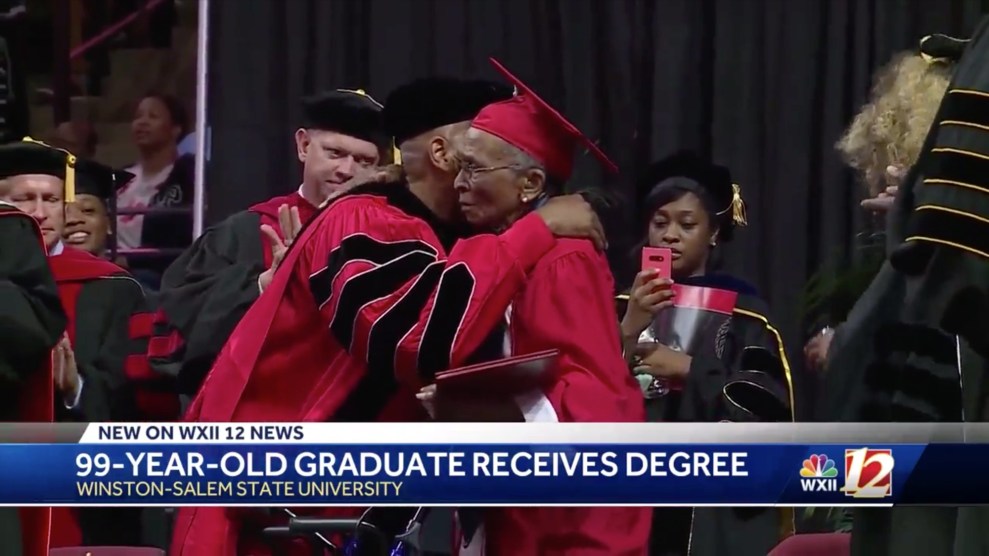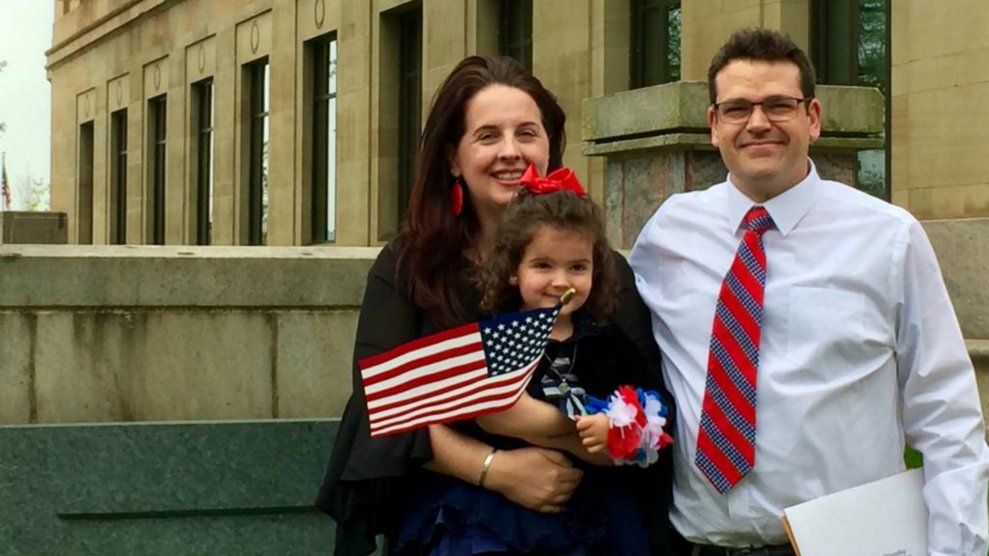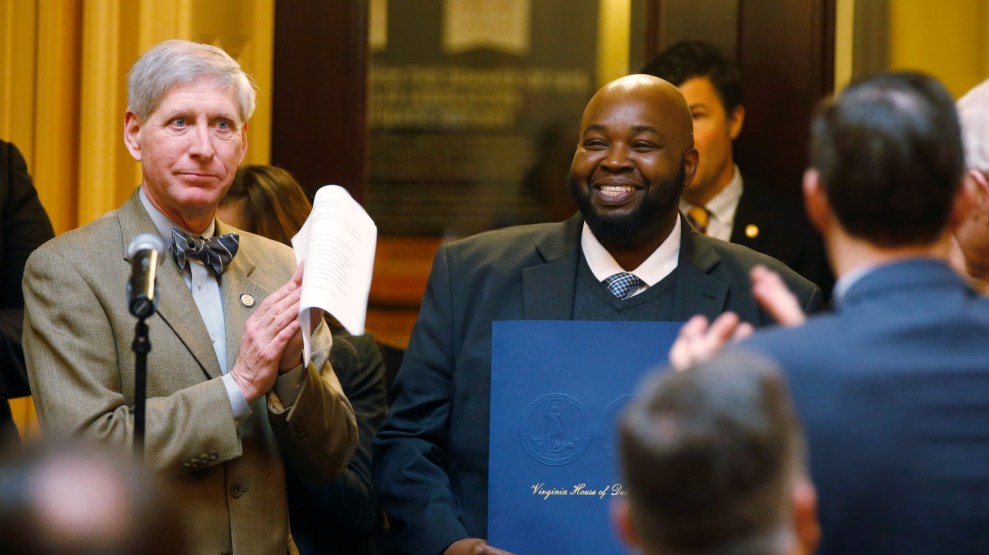
WXII-12
Welcome to Recharge, a weekly newsletter full of stories that will energize your inner hellraiser. See more editions and sign up here.
On the day of her college graduation in 1949, Elizabeth Barker Johnson had to teach and missed her ceremony. Though she eventually received her diploma in the mail, she often wished for a proper graduation.
Seventy years later, Johnson finally got the chance.
Last Friday, at 99, she joined more than 1,100 graduates at Winston-Salem State University and walked across a commencement stage in full graduation regalia: robe, cap, tassel and all. She received an honorary degree in special education.
“I can’t explain how excited I really was,” Johnson, who taught in Virginia and North Carolina schools for more than three decades, told WXII 12 News.
A World War II vet who drove trucks and worked in a military post office in Europe, Johnson returned to the United States and was one of the first people on campus to enroll through the GI Bill. Her passion to help others propelled her through studies and a teaching career.
“To begin with I felt like dropping out, but then there were so many children who were not getting the help they needed,” Johnson said. “I felt like teaching school, I could reach more people who would listen to me than if I tried to choose a job among adults.”
Johnson’s daughter, Cynthia Scott, said her mom imparted valuable lessons in life, including: “Treat everybody the same.”
On Friday, when Johnson rose to grab her walker, walk across the stage, and turn her tassel, she was greeted by a roar from row after row of college graduates. Not only was Johnson having her moment—she was also getting a standing ovation.
Here are some other Recharge stories to get you through the week.
- Keeping the day job. What keeps the prime minister of Bhutan de-stressed and energized? Returning on weekends to his old job tending to patients as a surgeon. “Some people play golf, some do archery, and I like to operate,” Dr. Lotay Tshering said one Saturday morning at his hospital. One job helps the other, says Tshering, who rose to power last November in the nation nestled in the Himalayas. On weekends, he sees health care issues firsthand. During the week, he tries to improve health care policy, a centerpiece of his government. Of medicine, he says, “I will continue doing this until I die and I miss not being able to be here every day. Whenever I drive to work on weekdays, I wish I could turn left towards the hospital.” (The Guardian)
- An alternative to nursing homes. Vermont residents are opening up their homes to elderly strangers and helping them with medications and other needs. In a new program called Adult Family Care, the elderly residents pay room and board, with Medicaid covering additional expenses. Early reviews of the program, which is less costly than nursing homes, have been generally positive. David Calderwood, who suffers from lung cancer, boards in Crystal Abel’s home, and lives in the bedroom where Abel’s adult daughter grew up. “It’s like my own family,” Calderwood said. Abel says she now earns more caring for Calderwood and another boarder than from her previous jobs. Still, she says, she’s formed strong bonds with the seniors she cares for. “Even if we didn’t have the money, we would find a way to make it work. I can’t imagine our lives without them.” (NPR)
- A coal-free week. Thanks to its growing reliance on solar and wind power, Britain just hit a major milestone: It generated all its electricity without using coal during the first seven days of May. The nation, which has pledged to wean itself completely off coal by 2020, now uses the fossil fuel as a backup in periods of high demand. The coal-free week comes two years after Britain was able to go coal-free for a day. (The Guardian)


















